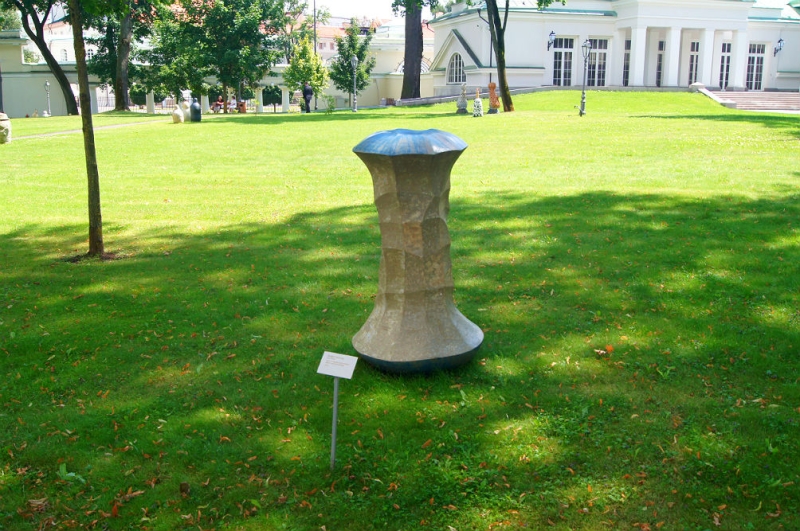
The alarm clock beeped at exactly 8:00. I sat up on the bed with a jerk. Vacation, which seemed so tempting just yesterday, was less exciting today. But nothing, the main thing is to jump into the car, and the road will do its job – it will knock KPIs, presentations, disputes with contractors, etc. out of your head. The main thing is to turn off your phone. Although you still have to call a couple of times. Large customers don’t like to wait.
I called my route “Baltic Ring”. The plan is as follows: travel throughout the Baltic states, including Vilnius, Riga, Tallinn, then take a ferry to Helsinki, see Finland, moving to the Russian Vyborg, then to St. Petersburg, and then to Moscow. Travel between cities in Europe is 300-400 km, such distances are comfortable for traveling by car. You don’t get tired and have time to see the sights.
So, let’s go. Since I will still have to do a little work during the trip, I have studied in detail all the issues of international roaming and am ready to share with you.
Option 1. Buying a prepaid card along the way in one of the European countries

Lithuanian Zhdun, brother of the Russian Zhdun. The sculpture is located in the Palace of the President of Lithuania.
Western Europe for a Russian traveling by car often begins with Lithuania. The M1 highway to the border with Belarus looks good, and after that too, although due to the abolition of toll sections, the road in some places began to resemble Russian ones from 2005. It’s a pity that two payments of 20 rubles for 400 km seemed like a huge amount to someone.
But let’s get back to SIM cards. There are three operators in Lithuania – Tele2, Omnitel and Bite. Let’s estimate what awaits us if we buy a SIM card with a separate Pildyk number from Tele2. Pildyk price starts from 5 euros. Calls abroad to Europe are 0.54 euros/min, and to countries such as Norway or Russia 0.72 euros/min. If you purchase a package of mobile communication services, then 100 MB costs 2.50 euros, 200 MB costs 5 euros. Calls within Lithuania to numbers of any networks are free if you purchase the VISI package.
Pros of a local SIM card – you definitely won’t get unexpected surprises from Russian cellular operators.
Disadvantages – all contractors will have to give their new number. And it ends up being expensive, but more on that below.
Option 2. Roaming package from a Russian operator

Lithuanian Zhdun seems to be hinting — wait for favorable rates
My operator divides all countries of the world into 4 categories (and this greatly affects the cost). Apparently, the main characteristic is the distance from the Kremlin. But how then can we explain that Cuba, Turkmenistan and the Maldives fell into the same group under the code name “exotic countries”. Lithuania avoided this fate, and here are the tariffs this operator offers us:
Package for 20 minutes of conversation – 200 rub.
Outgoing SMS – 20 rub.
40 MB – 200 rub.
Whoa! 200 MB with a Pildyk card costs 5 euros or ≈ 303 rubles, but here 40 MB for 200 rubles
The red and white operator has the following tariffs:
25 rub. — cost of 1 minute of call from Lithuania to Russia.
135 rub. — the cost of a call from Lithuania to another country, for example, to Germany.
19 rub. — 1 SMS.
450 rub. – unlimited Internet. Debited once a day, be careful, this is not a one-time payment!
And here are the tariffs of the green operator:
49 rub. — 1 minute of conversation.
129 rub. — 1 minute of conversation, if you call from Lithuania to any other country, not to Russia.
350 rub. — 70 MB of Internet per day.
The green operator has options to “save” roaming payments. But we are scientists – you turn on the option to save the cost of a call, and a daily subscription fee immediately appears. No matter how you tick the boxes when choosing a convenient tariff, a profitable combination will not appear. This is not poker!
Pros – you save your number, everyone can call.
Cons — expensive.
Option 3. Do nothing, go as is

And here they are, favorable rates… (Apple sculpture in the Palace of the President of Lithuania)
It’s strange that someone could choose this option. But you never know what situations happen in life. We forgot to turn on roaming and went on vacation. If this is the case, then be prepared to spend from 100 rubles. per minute of conversation and 200 rubles. per megabyte of data. But as a result, you will most likely be faced with bills for tens of thousands of rubles. You won’t be surprised by such stories anymore.
Pros – there are none.
Option 4. Buy a tourist SIM card in advance, in Moscow

This is what Russians’ broken dreams of profitable roaming look like (sculpture in the Palace of the President of Lithuania)
Tourist SIM cards appeared a long time ago as a response to the indecently high tariffs of cellular operators. It’s surprising that they have still survived in the era of instant messengers. But as Vladimir Mayakovsky wrote in the first “Journal of Russian Futurists”:
Listen!
After all, if the stars light up —
that means someone needs them?
That means someone wants them were?
So, someone calls these spitters a pearl?
So, someone also needs tourist SIM cards, and if so, then this option should be considered. Let’s take the tariffs of one of the tourist SIM card sellers:
Call from Europe to Russia – 0.39 euros (about 23 rubles) per minute.
1 SMS – 0.19 euros (about 12 rubles).
1 MB of data – 0.19 euros (about 12 rubles).
The cost of a tourist SIM card is on average 350 rubles. But if you think that this money will go to the starting balance, then you are mistaken. There will be “0” rubles. The tariffs seem to be quite good, but let’s dig deeper and find out where these prices come from. The thing is that travel SIM cards use USSD-callback technology. After dialing the number, a disconnection occurs and then the call comes back from the called subscriber. This technology is very annoying when used frequently.
Pros – cheaper than mobile operators.
Cons – call back technology, disconnections, ancient technology from the time of pagers, a new number that no one knows.
Option 5. Use Viber Out

And these, apparently, are the alien Zhduns (sculpture in the palace of the President of Lithuania)
What if I told you that calls are possible without roaming at all, and even from your own number? Yes, this is possible if you use messengers for communication. Calls are made using VoIP technology, that is, via the Internet. Due to this, messengers offer significantly lower prices for calls. Let’s look at Viber Out tariffs for several European countries:
Lithuania — 11.98 rub. for city tickets, 29.98 rubles. — to mobile phones in Russia.
Germany — 1.27 rub. for city tickets, 5.33 rubles. — to mobile phones.
USA — 1.27 rub. to landline and mobile.
UK — 1.27 rub. to landline, 3.93 to mobile.
France – 1.27 rub. for city tickets, 4.66 rubles. to mobile phones.
Why Lithuania is one of the most expensive countries in the world in terms of mobile communications is a mystery, but Viber Out comes to the rescue here too. Still 11.98 rubles. it’s not 43 rubles. as is the case with a prepaid SIM card from a local operator or a tariff from a Russian telecom operator. The starter package for replenishing a Viber Out account starts at $0.99 and this is approximately 1 hour of communication with Germany.
Let’s sum it up
Having considered all the options, I chose a SIM card from a Lithuanian operator and Viber Out. In my opinion, this is the optimal combination. The SIM card of the mobile operator itself is a backup, a reserve in case of unforeseen circumstances. And Viber Out has become the main working tool in negotiations with customers. I always turn off Russian SIM cards when traveling abroad. It’s safer for your wallet. Well, now let’s go! And I press the gas pedal. Vacation has begun.
P.S. Thanks to Litovsky Zhdun for information about local SIM cards.
Convenient site for booking hotels around the world – OneTwoTrip.

